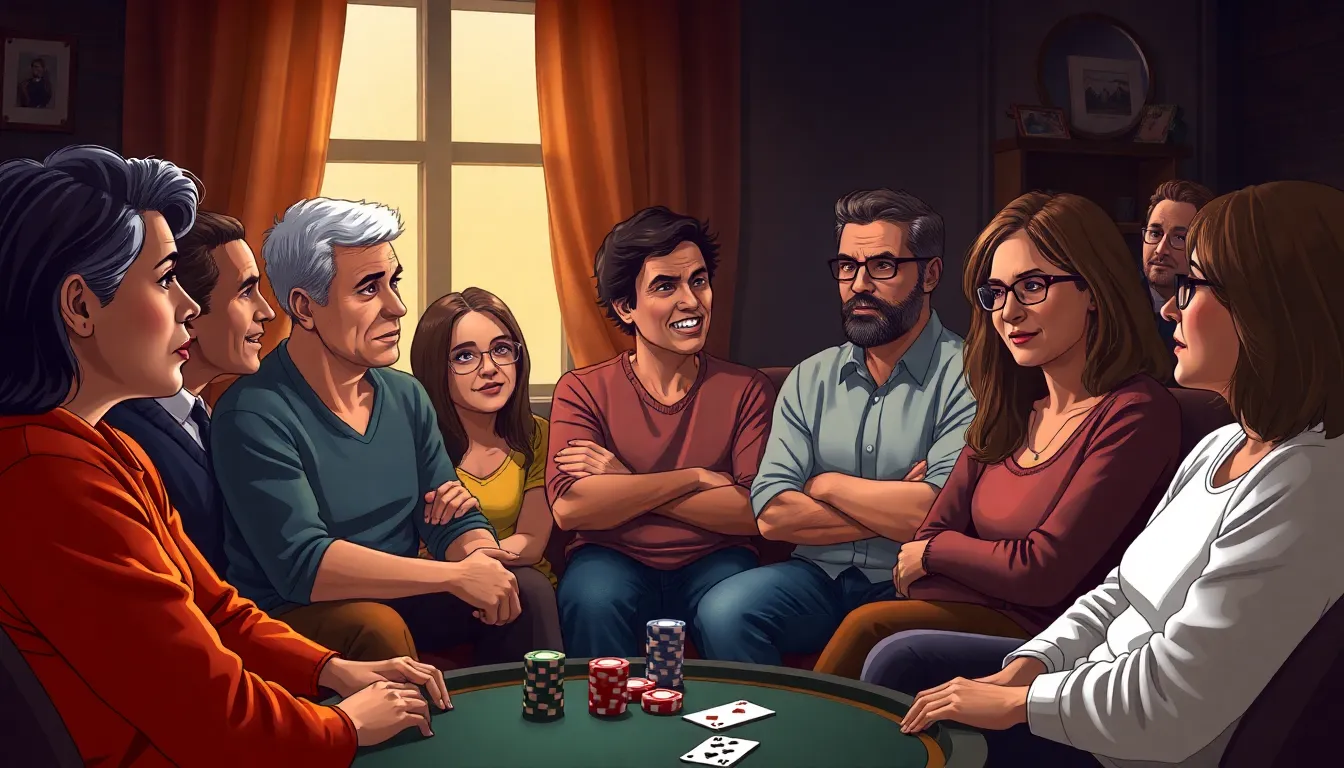Gambling Problem Stories: Real Lives Torn Apart by Addiction and Recovery

Gambling can feel like a thrilling rollercoaster ride, but for some, it turns into a wild ride with no brakes. Picture this: a person sitting at a poker table, chips stacked high, feeling like a king—until the next hand turns them into a jester. Gambling problem stories reveal the ups and downs of those who’ve danced too close to Lady Luck and faced the consequences.
These tales aren’t just cautionary; they’re packed with humor and heart. From epic wins that quickly became epic fails to the bizarre lengths some go to chase a lost bet, these narratives shine a light on the human experience behind the numbers. So buckle up as we dive into the world of gambling problem stories, where the stakes are high and the lessons are priceless.
Gambling Problem Stories
Gambling problems affect many individuals, leading to serious consequences. Recognizing the signs and understanding addiction is crucial for effective intervention.
Definition of Gambling Addiction
Gambling addiction, also known as compulsive gambling, is characterized by an uncontrollable urge to gamble despite harmful consequences. Individuals trapped in this cycle often prioritize gambling above all else, neglecting personal relationships and responsibilities. The National Council on Problem Gambling estimates around 2 million adults in the U.S. meet the criteria for severe gambling problems. Psychological conditioning reinforces this behavior, creating a dependency similar to substance abuse. It’s important to note that gambling addiction impacts not only those who gamble but also their families and communities.
Signs of a Gambling Problem
Identifying the signs of a gambling problem can facilitate timely intervention. Frequent neglect of daily responsibilities often surfaces, as individuals prioritize gambling activities. They may experience increasing preoccupation with gambling, losing track of time or finances. Withdrawal symptoms become evident when attempting to cut back; feelings of irritability or anxiety frequently arise. Additionally, individuals may lie about their gambling habits, concealing the extent of their losses. The tendency to chase losses further exacerbates the issue, creating a cycle that is difficult to escape. Awareness of these signs empowers friends and families to initiate conversations about seeking help.
Real-Life Gambling Problem Stories

Gambling can lead to serious issues for many individuals, exemplified through real-life experiences. Personal stories reveal the struggles and choices of those affected by gambling problems.
Personal Testimonies
John, a once-avid poker player, found himself sinking into debt. He recalled the exhilarating buzz of high-stakes games but eventually faced the crushing reality of his losses. Sarah shared a different angle; her initial thrill from the slot machines morphed into hours spent chasing losses. Both testimonies highlight the deceptive nature of gambling, where the allure of easy money often masks the truth of addiction. Their encounters emphasize a common thread: the need for understanding and support when recovering from gambling. Individuals often express regret, wishing they had recognized the warning signs sooner.
Impact on Relationships
Gambling problems can fracture relationships. Mark discovered that his betting habits drove a wedge between him and his spouse. Arguments over finances became routine. Emily, too, reported losing friendships as her gambling consumed her life. Trust eroded quickly, leading to significant stresses in her personal life. Couples often struggle with financial strain, while friends feel powerless against addiction’s grip. Children in these environments face emotional turmoil, witnessing the consequences of unchecked gambling. Rebuilding connections becomes an arduous journey, often requiring professional guidance and open communication.
Recovery and Support
Recovery from gambling problems involves various effective pathways. Support systems play a crucial role in this process.
Treatment Options
Counseling represents a primary treatment option for individuals facing gambling addiction. Cognitive-behavioral therapy focuses on changing harmful thought patterns and behaviors. Medication may provide relief for some individuals, helping manage underlying issues such as depression or anxiety. Inpatient and outpatient treatment programs offer structured environments for recovery, giving participants access to professional support and guidance. Self-help resources, including workbooks and online modules, also assist individuals in understanding their gambling behavior and developing coping strategies.
Support Groups and Resources
Support groups provide a vital network for those affected by gambling addiction. Gamblers Anonymous operates on the 12-step model, allowing individuals to share their experiences and gain encouragement from peers. Families impacted by gambling issues benefit from groups like Gam-Anon, which offer support and understanding. Additionally, online resources, including forums and chat rooms, connect individuals seeking guidance while maintaining anonymity. Community programs often include educational workshops, fostering awareness and prevention. Local helplines assist individuals and families in accessing needed resources and professional advice.
Conclusion
Gambling problems can lead to profound emotional and financial turmoil, affecting not just the individual but their loved ones too. The stories shared throughout the article serve as powerful reminders of the unpredictable nature of gambling and the importance of recognizing the signs of addiction.
Support and understanding are crucial for those navigating the path to recovery. By fostering open conversations and encouraging individuals to seek help, families and communities can play a vital role in overcoming gambling challenges.
The journey may be difficult, but with the right resources and support systems, recovery is possible. Embracing these narratives can inspire hope and resilience in those facing similar struggles.







